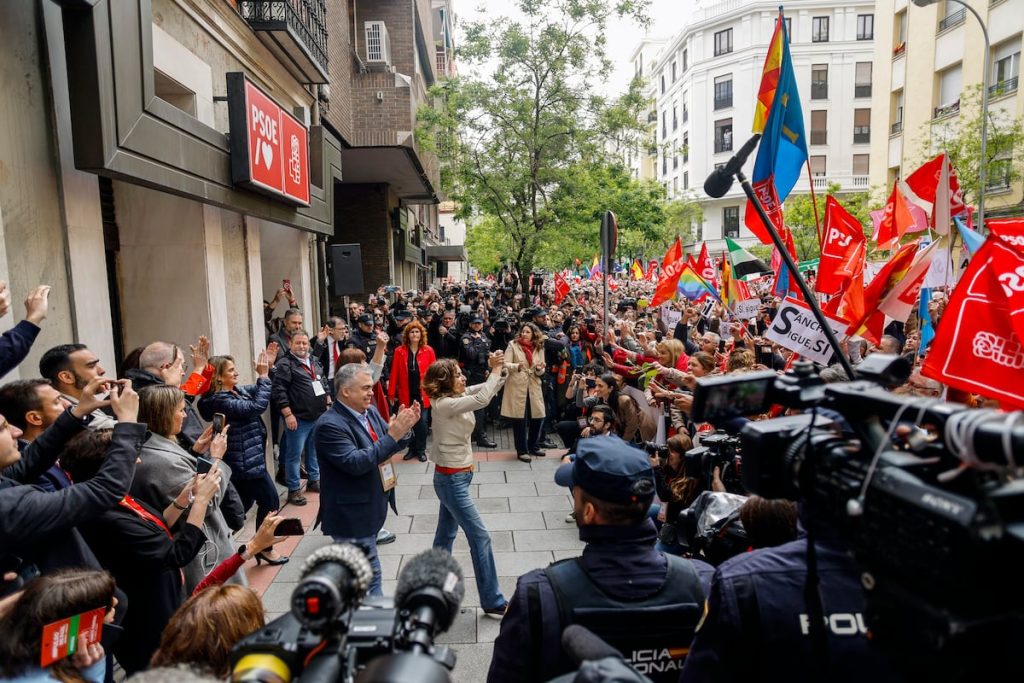The symbolic metaphor of Pedro Sánchez (“This decision does not mean a full stop. It’s a new paragraph”) to justify his final decision is thought-provoking. With the emergence of the unbeatable epistolary genre in politics, the analogies with punctuation marks are a deliberate or unintentional nod to the value of words. Written a few days ago, now with the spotlight on spoken word. However, what is at stake today is the exemplary and moral character of his word. Politics will come later. There will be time to reflect, once the emotional whirlwind of the past few hours has subsided, on whether Spanish society needed a new paragraph, a new chapter, or even a new book. With the same authors or with new pens, genres, and stories. The coming days will allow for more perspective. But today, the central topic is the President’s word, his credibility, and authenticity. His value.
In his recent book, “The Consecration of Authenticity” (Anagrama, 2024), French sociologist Gilles Lipovetsky talks about a societal obsession with authenticity that has become a fetish word, a consensus ideal, a daily concern. Politics, as expected, is not exempt from this “ethic of authenticity,” which is a sign of the times. Citizens expect politicians and politics to be authentic; and if they cannot be, they will try to appear authentic, even though being natural is “the most difficult of poses,” as Oscar Wilde once said.
The letter from last Wednesday was not signed by the President, but by the person. It was signed by hand and had no institutional graphic indicators: no letterhead, logo, or seal. “We often forget that behind politicians there are people,” it said near the end. Nothing is more authentic than setting aside titles and politics to humanize oneself. Today, however, he chose to appear – without taking questions – at the door of La Moncloa, with a national emblem podium and flanked by flags of Spain and the European Union. Pedro Sánchez sent the letter; the President announced that he will stay in office. The letter portrayed a vulnerable Sánchez asking Spanish citizens for time to “stop and reflect,” not as a lone superhero, but with his wife by his side because he is deeply in love. From rebellious socialist to Machiavellian strategist, and from perennial candidate to sensitive person.
The most affecting things are what happens closest. In today’s appearance, he presents himself as a fighter who, in the face of adversity, comes out to fight with more strength. He decides to stay in the presidency, aware that the attacks will continue: “We know that this campaign of discredit will not stop.” Thus, his decision is almost a sacrifice because “the important, the truly important thing, is that we love Spain.” It is a script. There is no resignation, on the contrary. There is not even (at least for now) judicial reform to combat lawfare. According to him, there is a “new paragraph.” Sánchez reinforces his ambitions. He continues in the presidency to work on the “pending regeneration of our democracy” and invites Spanish citizens to a “collective reflection” to decide “what kind of society we want to be.” A somewhat pretentious rhetoric that may anticipate a change in his narrative: from “progressive president” to “defender of democracy.” Can one be a victim and a hero at the same time? There is no vote of confidence, but the confidence of Spanish society in his word and narrative is at stake.
These days, there has been much talk about the possibility of a vote of confidence, but less about confidence in Pedro Sánchez’s word. The letter, today, has a different interpretation and focuses on the credibility of the President. Some see sincerity, while others see victimhood and frivolity. As demonstrated by an article by Simon M. Lübke and Ines Engelmann, authenticity is also subjective: in judging whether something seems authentic or not, our prejudices, beliefs, and personal preferences come into play. Polarized authenticity. Five days later, collective reflection has entrenched us more in prejudices than in judgments. Sánchez remains, but nothing will be the same except him. “When he woke up, the dinosaur was still there.” This micro-story by Guatemalan writer Augusto Monterroso, despite or thanks to its brevity, is a masterpiece and has had various interpretations and resignifications over the years. Today, after five days of anticipation, and after a long public vigil… Pedro Sánchez was still there, with his new paragraph, after the recent ellipses. We will see if his micro-story is inspiring or not. And how the punctuation marks continue.


